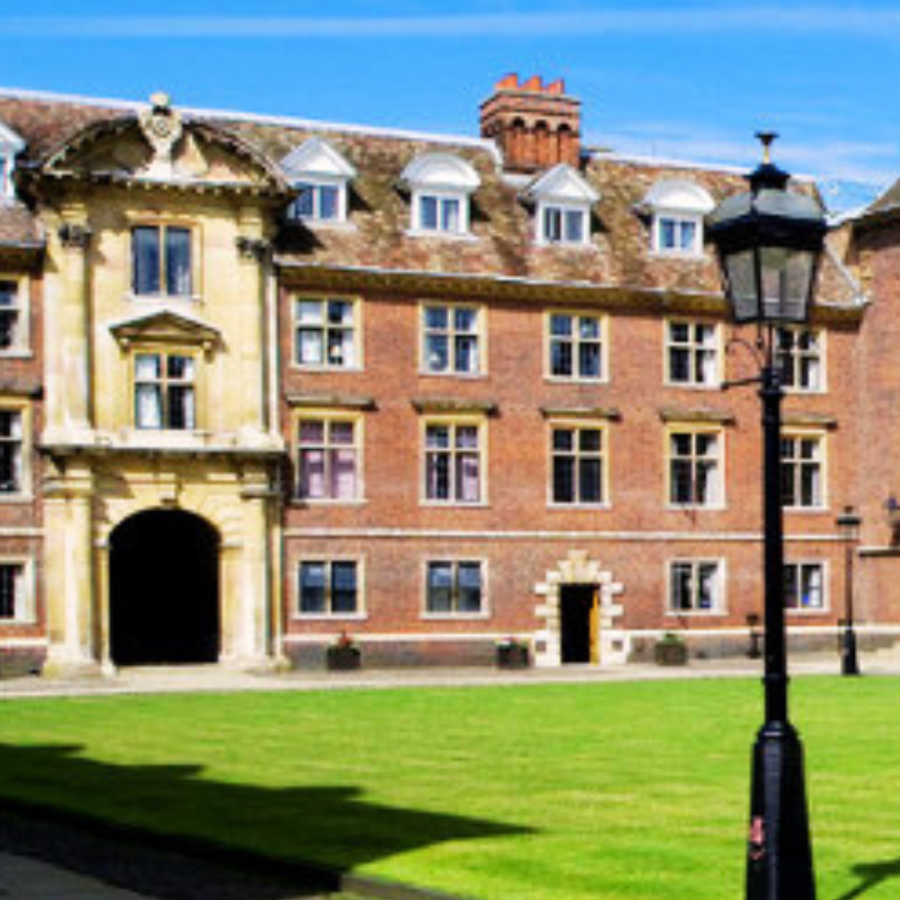Among the different events that St Catharine’s hosted this summer was a residential workshop that brought together Jewish and Palestinian educators from Israel – the fourth time that the College has provided a neutral environment that helps to strengthen connections in the pursuit of peace.
Organised by Jerusalem Peacebuilders in partnership with Retorika for Multiculturalism, the EXCEL (Exploring Conflict, Education, and Leadership) Institute’s intensive programme aims to increase educators’ capacities to integrate the practices of peacebuilding and youth leadership in their classrooms and curricula through a combination of experiential and hands-on sessions suitable to adaptation for high school classrooms.
The Level III residential workshop at St Catharine’s happens later in the EXCEL Institute’s programme, after educators have participated in two preliminary workshops in Israel. The most recent Level III workshop was held 21–28 July 2024 and welcomed 20 educators who teach English – from both Jewish and Palestinian communities.
Dr Elias Farah, the CEO of Retorika for Multiculturalism and co-director of the programme, said:
“Organising the workshop this year presented unique challenges due to recent events; however, the participants remained steadfast in their commitment to exploring the conflict more profoundly and strengthening the friendships they had formed prior to the onset of current circumstances.”
The residential workshop featured peacebuilding dialogue through storytelling, as well as challenging discussions about the Israeli-Palestinian conflict. Given that all the participants are English teachers, the programme also included creative writing workshop delivered by lecturers from the University of Cambridge’s Institute for Continuing Education. Cultural activities designed to foster stronger connections among the teachers were also included, such as punting, attending a play by William Shakespeare, and poetry readings and picnicking in Grantchester.
Additionally, the participants had the opportunity to meet St Catharine’s own Dr Niamh Gallagher (2009, History; Fellow 2018), who provided an insightful overview of the history of Northern Ireland, the Good Friday Agreement, and the valuable lessons it offers. Dr Gallagher said,
“The 30-year ‘Troubles’ in Northern Ireland and resulting Good Friday Agreement may well be mistaken for ‘history', but my experience talking about these events with teachers from the EXCEL Institute showed that the Northern Ireland parallel continues to have much relevance for Jewish and Arab educators today. The stimulating questions during the lecture and engaged discussion that followed demonstrated the value of this case study for teaching and practicing peacebuilding in the Middle East.
“I was deeply impressed by the programme and its participants, whose commitment to education and improving relations between divided groups was especially praiseworthy given the ongoing context of the devastating war. I was glad that St Catharine's could provide both the facilities and expertise to enable such important agendas to thrive. I hope this collaboration can continue for years to come.”
Dr Farah noted the remarkable transformation of the participants from near strangers to a close-knit community of educators united in their pursuit of a more tolerant and collaborative society:
"The conversations were often challenging, but thanks to the bond and trust they have developed over the past year, and the supportive environment provided by St Catharine’s, our participants succeeded in engaging in these discussions and understanding each other on a much deeper level.
“Next year, the teachers will collaborate on developing a shared curriculum for their schools and will design summit days for their students to meet and interact, thereby contributing to the creation of a more tolerant and understanding society in Israel.”
Jerusalem Peacebuilders’ founder, Fr. Nicholas Porter sees significant programmatic impact:
“EXCEL fosters a new shared narrative beyond division toward a shared society and a shared future for Israeli Jews and Palestinian Arabs alike. This generates positive systematic change within the Israeli high school system.”
One Jewish participant reflected
“The amazing group dynamic, the cooperation between the group, the willingness to engage in a difficult conversation, to ask those controversial questions and not feel uncomfortable to do so in a beautiful setting made our experience unique. I now have new close friends from various backgrounds who will always cherish this time we had together, a type of bond that doesn't happen too often.”
A Palestinian teacher stressed
“My experience was meaningful and has strengthened my friendships with the other participants. Being abroad and far from our comfort zones made us dare to explore the stories that have shaped our reality in braver depths, allowing room also for deeper understandings of the shared stories. I am very grateful that we could experience all of this at St Catharine’s in Cambridge as it offered a beautiful and much needed space for us to do the work, process it, and improve our peacebuilding skills.”
JPB-Retorika EXCEL is grateful to Professor Peter Wothers (1988, Natural Sciences; Fellow 1997), Rushton Fellow at St Catharine’s, for his advice and support in coordinating the residential workshop’s return to the College over recent years.



